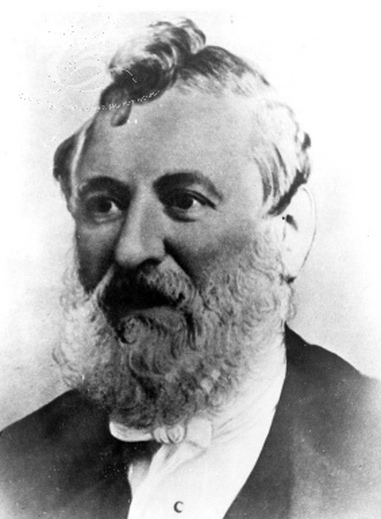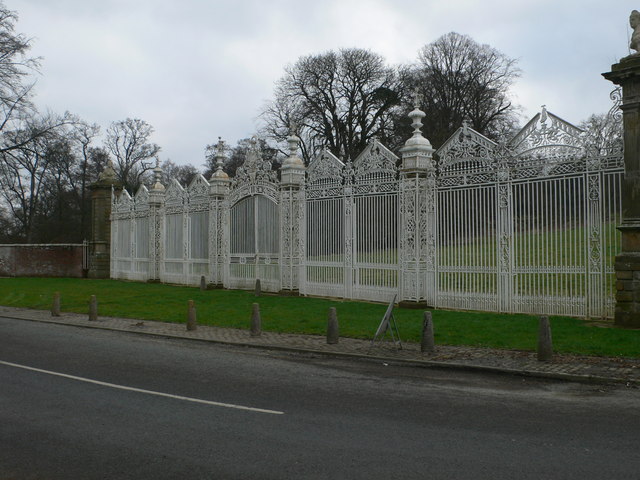|
Bethel, Abernant
Bethel, Abernant is a Baptist Chapel at Abernant in the Aberdare Valley in Wales and one of the few nonconformist chapels in the area that remained open into the twenty-first century. Foundation Bethel was a branch of Calfaria, Aberdare and began as a Sunday School in 1846, overseen by the Rev. John Thomas. The church itself was established in 1857, largely at the instigation of Thomas Price, minister of Calfaria, Aberdare, and the leading figure in the Baptist denomination in the locality. The original 1856 schoolroom, which cost £344 to build, proved inadequate within a short time. In 1861 it was taken down and the chapel rebuilt and re-opened a year later. On 20 May 1862, members from the mother church at Calfaria and other churches at Aberdare marched in a procession from Aberdare to Abernant, led by Thomas Price, and a foundation stone for the new chapel was laid. Within a mere seven months the building was ready, with opening services being held on 7 and 8 December 186 ... [...More Info...] [...Related Items...] OR: [Wikipedia] [Google] [Baidu] |
Baptists
Baptists form a major branch of Protestantism distinguished by baptizing professing Christian believers only ( believer's baptism), and doing so by complete immersion. Baptist churches also generally subscribe to the doctrines of soul competency (the responsibility and accountability of every person before God), ''sola fide'' (salvation by just faith alone), ''sola scriptura'' (scripture alone as the rule of faith and practice) and congregationalist church government. Baptists generally recognize two ordinances: baptism and communion. Diverse from their beginning, those identifying as Baptists today differ widely from one another in what they believe, how they worship, their attitudes toward other Christians, and their understanding of what is important in Christian discipleship. For example, Baptist theology may include Arminian or Calvinist beliefs with various sub-groups holding different or competing positions, while others allow for diversity in this matter within t ... [...More Info...] [...Related Items...] OR: [Wikipedia] [Google] [Baidu] |
Abernant, Rhondda Cynon Taf
Abernant (or Abernant-y-Wenallt) is a small village north-east of the town of Aberdare, Rhondda Cynon Taf, Wales. Like many in the South Wales Valleys, it was once a coal-mining village. Etymology Abernant is a shortening of the name "Abernant-y-Wenallt", and the area is recorded under this name in an 1800 lease of the land. While the place-name element ''Aber'' is easily understand as a confluence of watercourses, (here referring to meeting of the Nant y Wenallt and the Cynon) the rest of the name is more debatable. The element ''-wen'' may refer to the colour white, or as an indicator that the place was in some way "blessed" or "holy". Similarly, the termination ''-allt'' commonly refers to an area of sloping hillside but can also denote an the area as heavily wooded. Finally, In the language of South East Wales, ''nant'' refers to the watercourse itself, rather than the valley it sits in, therefore the name may be translated as either "the mouth of the white brook on the woo ... [...More Info...] [...Related Items...] OR: [Wikipedia] [Google] [Baidu] |
Calfaria, Aberdare
Calfaria Baptist Chapel, Aberdare, was one of the largest baptist churches in the South Wales Valleys and the oldest in the Aberdare valley. The chapel had an ornate interior, including a boarded ceiling with a deeply undercut rose, while the balcony balustrading had a cast iron front with an intricate foliage design. These features were common in the Welsh chapels of the late nineteenth century. The organ was installed in 1903 at a cost of £850. It was played for the last time in 2012 by Robert Nicholls, during a Radio Cymru broadcast shortly before the closure of the chapel. Early history The earliest Baptist meetings in the area were held in agricultural buildings or in the Long Room of the Farmers Arms in Aberdare. In 1811, a small piece of land was leased from Griffith Davies of Ynysybwl and 1812, Carmel Baptist Church was opened. Known locally as Penpound, the first minister was William Lewis. The church struggled in the early days owing to the failure of the Aberdare ... [...More Info...] [...Related Items...] OR: [Wikipedia] [Google] [Baidu] |
Thomas Price (Baptist Minister)
Thomas Price (17 April 1820 – 29 February 1888) was a leading figure in the political and religious life of Victorian Wales, and the central figure of the Cynon Valley for more than forty years. As minister of Calfaria Baptist Chapel, Aberdare, Price would establish a number of chapels in the town, wrote and edited a number of books and newspapers, played an active role in local and national government and is remembered as the leading defender of the Welsh speaking population during the "''Treachery of the Blue Books''" ( cy, Brad y Llyfrau Gleision) Early life Thomas Price was born on 17 April 1820, one of six children born to John and Mary Price of Maesycwper, near Ysgethrog, in the Parish of Llenhamlwch, about three miles below the town of Brecon. He began to earn his living at an early age by assisting a local farmer. In early life, he became a page boy for Clifton family of Tŷ Mawr, Llanfrynach. The Clifton daughters taught him to read English. He saved £21 to pay for ... [...More Info...] [...Related Items...] OR: [Wikipedia] [Google] [Baidu] |
Richard Fothergill (politician)
Richard Fothergill (8 November 182224 June 1903) was an English ironmaster, a coalmine-owner in Wales and a Liberal politician who sat in the House of Commons from 1868 to 1880. Early life Fothergill was the son of Richard Fothergill of Lowbridge House, near Kendal and his wife Charlotte Elderton, daughter of Charles Elderton, Esq. He was educated at the Military Academy, Edinburgh.Mair, Robert Henry. (1870) Debrett's Illustrated House of Commons, and the Judicial Bench. 1870.' London: Dean & Son, p. 107. Career Fothergill succeeded his uncle Rowland Fothergill (1749-1871) as manager, of the Aberdare iron-works and was later their proprietor. During this period a campaign was conducted against the company for their alleged support of the truck system. The campaign was led by Thomas Price of Calfaria, Aberdare, although ironically he and Fothergill soon buried their differences and became allies in the world of local politics. In 1854 he was elected on the first Aberdare L ... [...More Info...] [...Related Items...] OR: [Wikipedia] [Google] [Baidu] |
Treuddyn
Treuddyn is a village, community and electoral ward in Flintshire, Wales, located just off the A5104 road, around 4 miles south-east of Mold and 3 miles north-west of Caergwrle. The community includes the nearby village of Coed Talon, to the east, and Rhydtalog, to the south-west on the Denbighshire border. There are two primary schools: Ysgol Terrig, which is a Welsh medium school and Ysgol Parc y Llan, which is an English medium school. The closest secondary schools are Ysgol Maes Garmon (Welsh) and Alun School (English) in Mold, 4.5 miles away. There is also a Post Office and shop. Treuddyn has its own church, St Mary's, and there are also two active chapels in the village. A third chapel, that of the Baptist denomination, has closed. There are many Bronze Age cairns in the area. It was an industrial area during the 19th and 20th centuries, with mining of coal, iron and lead. There was a distillery to extract oil from the coal, and a blast furnace between 1817 and 1865. I ... [...More Info...] [...Related Items...] OR: [Wikipedia] [Google] [Baidu] |
Leeswood
Leeswood ( cy, Coed-llai) is a village, community and electoral ward in Flintshire, Wales, about four miles from the historic market town of Mold. At the 2001 Census, the population was 2,143, reducing slightly to 2,135 at the 2011 Census. It was the centre of attention during the Mold Riot of 1869, where the owners of the mine refused to allow the speaking of the Welsh language in the mines. Around a quarter of Leeswood's resident population has some knowledge of the Welsh language, exceeding the county's average of 21.4%. In all categories of linguistic competency, the ward performs around the Flintshire average, although the proportion of those able only to understand spoken Welsh is higher than the county and national average. The famous White Gates of Leeswood Hall were attributed to the Davies brothers of Wrexham. The family of smiths were known in the 18th Century for their high-quality work using wrought-iron. The Wynne baronets were later to live in Leeswood Hall a ... [...More Info...] [...Related Items...] OR: [Wikipedia] [Google] [Baidu] |
Chapels In Rhondda Cynon Taf
A chapel is a Christian place of prayer and worship that is usually relatively small. The term has several meanings. Firstly, smaller spaces inside a church that have their own altar are often called chapels; the Lady chapel is a common type of these. Secondly, a chapel is a place of worship, sometimes non-denominational, that is part of a building or complex with some other main purpose, such as a school, college, hospital, palace or large aristocratic house, castle, barracks, prison, funeral home, cemetery, airport, or a military or commercial ship. Thirdly, chapels are small places of worship, built as satellite sites by a church or monastery, for example in remote areas; these are often called a chapel of ease. A feature of all these types is that often no clergy were permanently resident or specifically attached to the chapel. Finally, for historical reasons, ''chapel'' is also often the term used by independent or nonconformist denominations for their places of worshi ... [...More Info...] [...Related Items...] OR: [Wikipedia] [Google] [Baidu] |
Churches Completed In 1895
Church may refer to: Religion * Church (building), a building for Christian religious activities * Church (congregation), a local congregation of a Christian denomination * Church service, a formalized period of Christian communal worship * Christian denomination, a Christian organization with distinct doctrine and practice * Christian Church, either the collective body of all Christian believers, or early Christianity Places United Kingdom * Church (Liverpool ward), a Liverpool City Council ward * Church (Reading ward), a Reading Borough Council ward * Church (Sefton ward), a Metropolitan Borough of Sefton ward * Church, Lancashire, England United States * Church, Iowa, an unincorporated community * Church Lake, a lake in Minnesota Arts, entertainment, and media * ''Church magazine'', a pastoral theology magazine published by the National Pastoral Life Center Fictional entities * Church (''Red vs. Blue''), a fictional character in the video web series ''Red vs. Blue'' * Churc ... [...More Info...] [...Related Items...] OR: [Wikipedia] [Google] [Baidu] |





